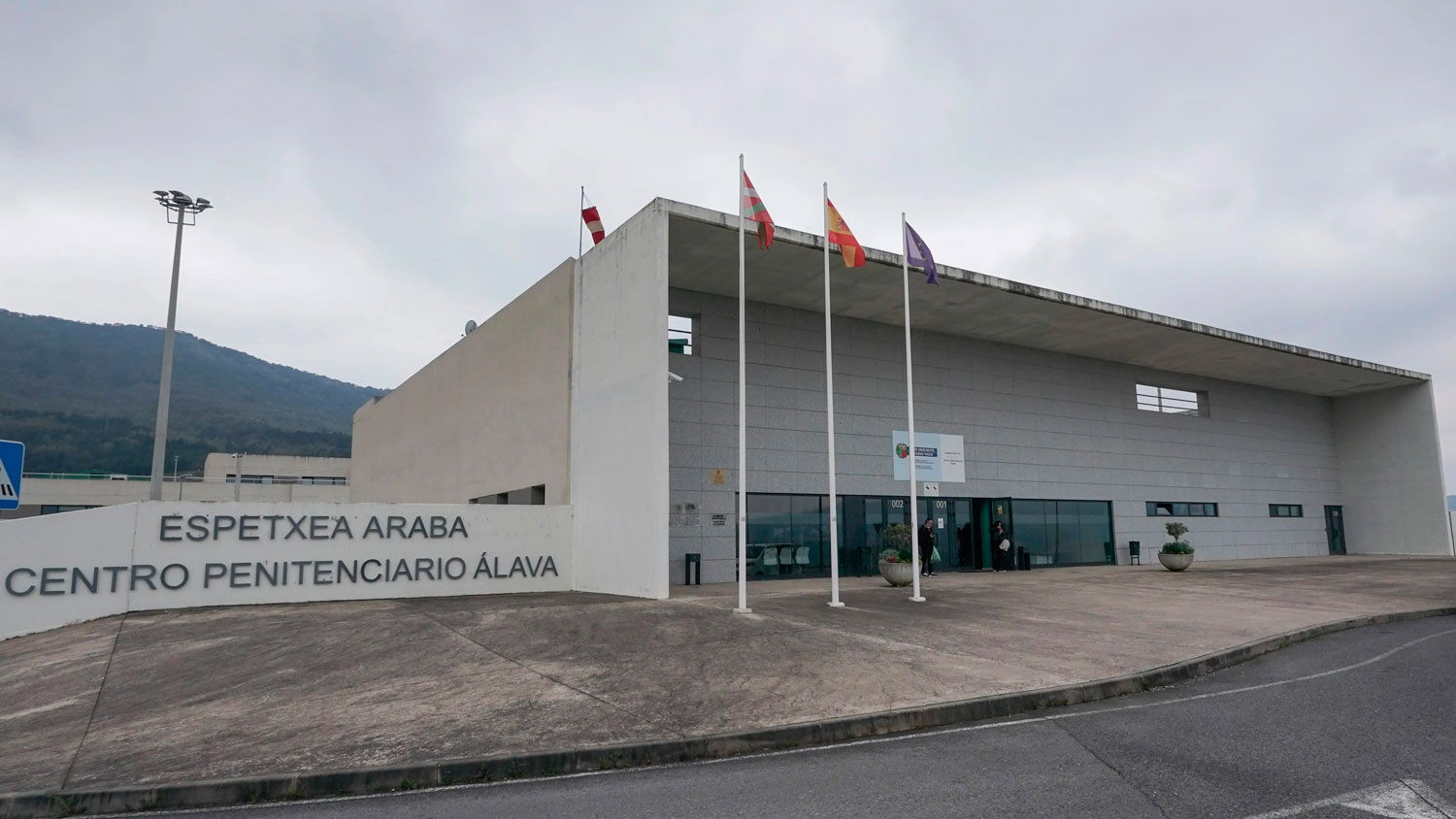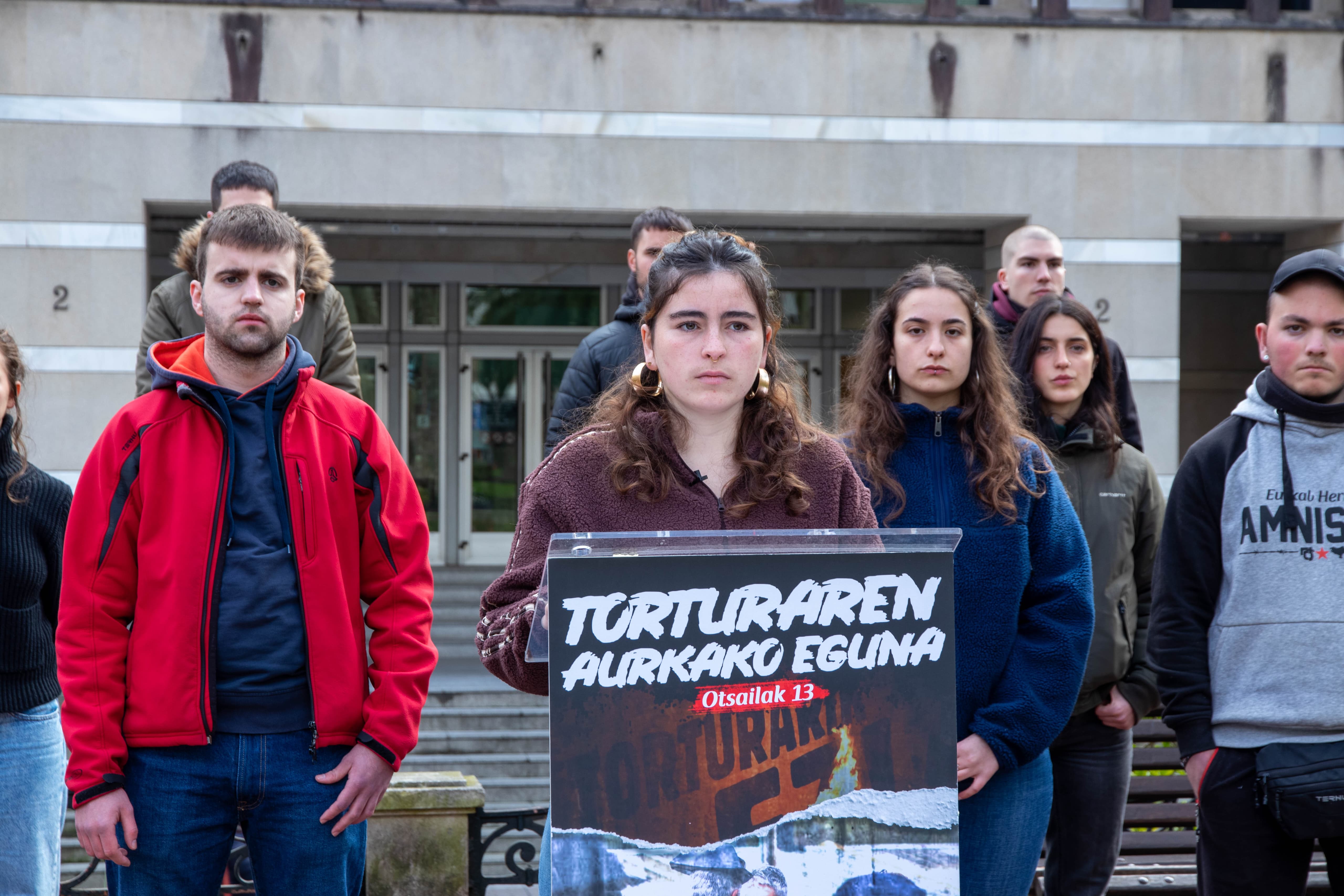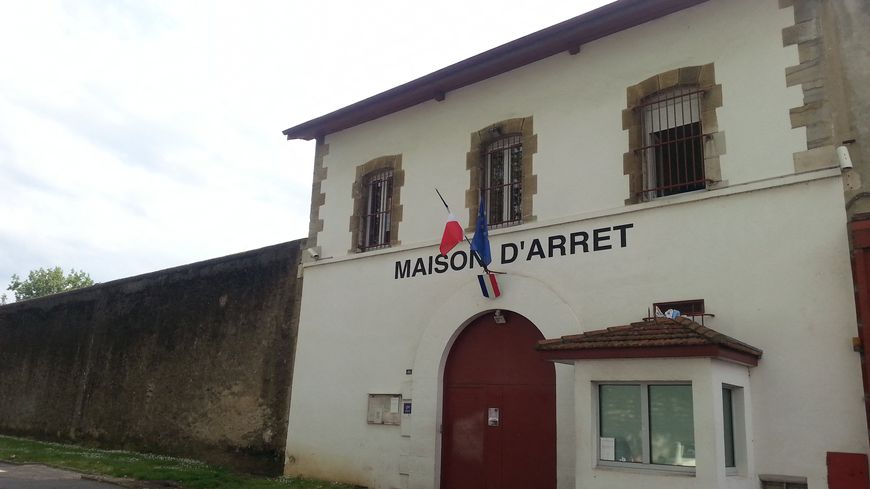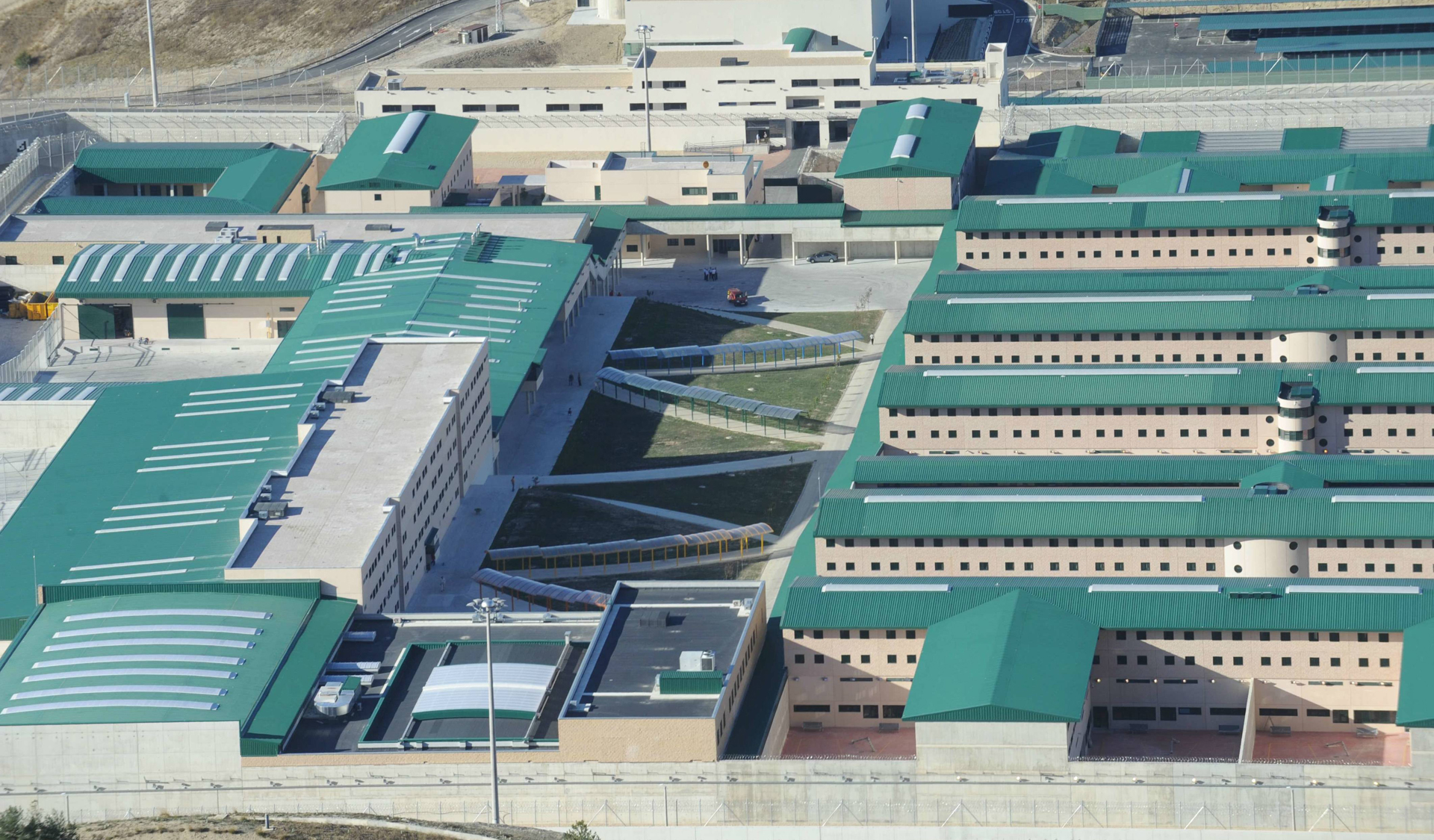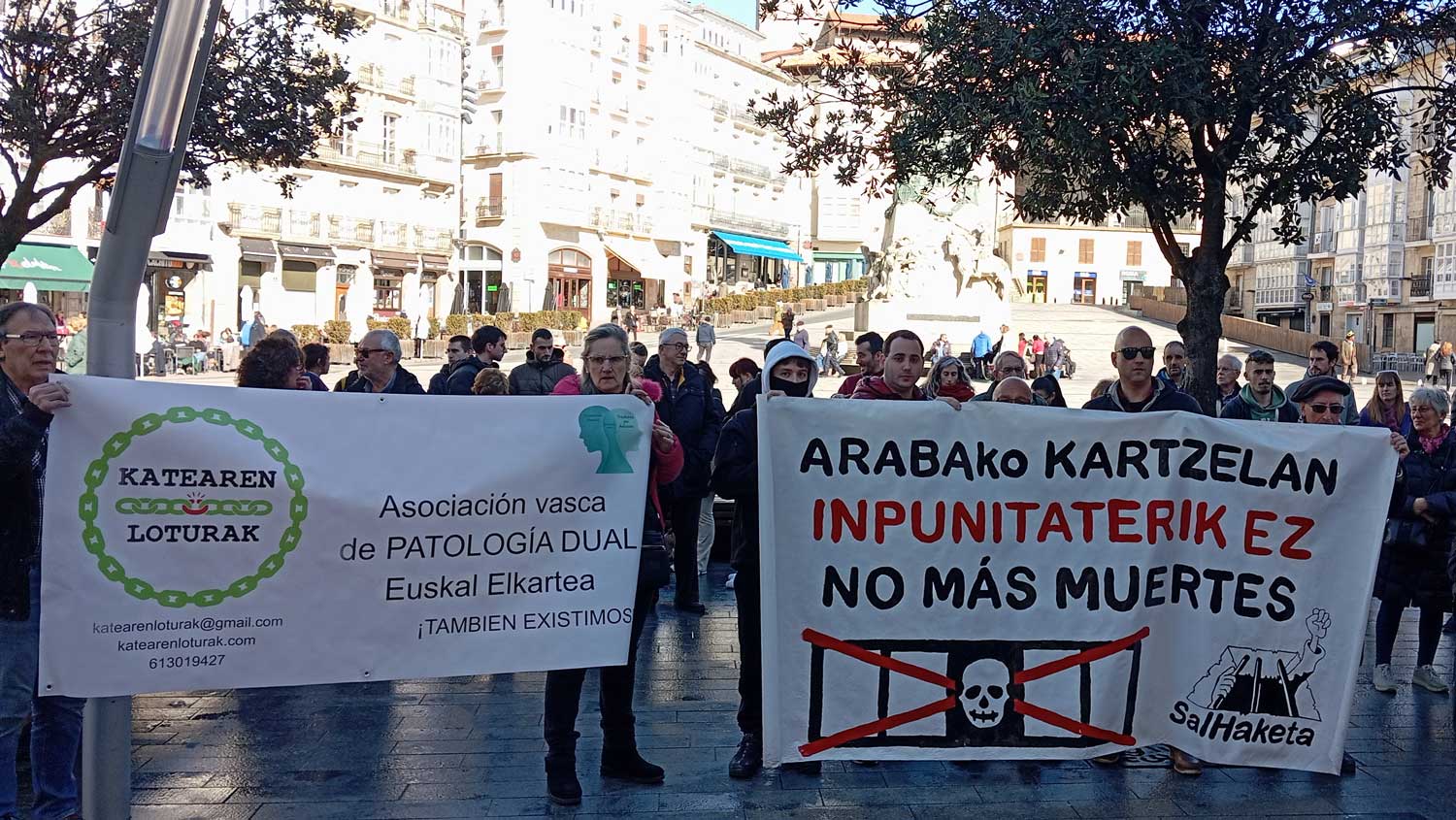Nine steps to end prison deaths
- González García is the fourth prisoner who has been killed in Alavesa prison since the beginning of the year. A number of associations have presented a consensual document calling for action to end the ongoing deaths under surveillance.

Dozens of people have concentrated today in Vitoria-Gasteiz in response to the call of Salhaketa Araba, under the motto “No to impunity. Guarantees of non-repetition”. Even if they don’t take the floor directly, González’s family wants to be present, “so that the fourth young man killed in Zaballa this year will go from being number to name; they don’t want to have passed on to anyone what has happened to them,” said Adrián Donnay de Salhaketa.
The 28-year-old appeared dead on 25 April in his cell in Zaballa for reasons that are still unknown. Three weeks earlier, Jonathan Costillas Rituerto, a 24-year-old vitorian, hanged himself in the same prison where he served his sentence.
Two years without seeing her daughters
Gonzalez spent two years and four months in Zaballa. Donnay has denounced that throughout this time he has not been able to see his three daughters; “in recent months, not even his partner.” The representative of Salhaketa has strongly criticized the attitude of the military prison following the death of his husband. Family members “have not had psychological support or referrals in the process. They have not been properly informed of their rights.” The prison ordered the incineration of González's body before the results of the autopsy were known, which made it impossible to choose a second autopsy.
Unlike the relatives of Costillas, on this occasion the director of Zaballa has met with the relatives of González. Both the family and Salhaketa have been repulsed by the director's attitude towards their relatives. In his opinion, he initially stated that if the prisoner's situation was known "he could do something more", but when the family and Salhaketa's lawyer told him about the four deaths they had had in the past four months, "the director understood it as a request for explanation and in five minutes he ended the meeting. This care is regrettable, insufficient and re-victimizing for family members”.
Although the exact causes of death are still unknown, “we know that, like most monitored deaths, this could also be avoided, which is not natural,” said Donnay. For this reason, the family will be involved in the case to try to clarify the facts that have occurred.
Nine measures to end deaths and ensure adequate care for family members
The Salhaketa Araba association has taken advantage of the concentration and press conference to present a statement to the medios.Han signed the convention 16 associations of the Basque Country and the Spanish State working for prisoners and human rights. César Manzanos de Salhaketa has unearthed the content of the document.
To begin with, the signatories express their concern about the four deaths in Zaballa and the 79 people who have appeared this year in state jails: "A two-day death. An avoidable and silent tragedy.” Political and judicial decision-makers find the vain attitude they show to clarify the causes of these deaths unacceptable. They call on the Directorate General for Penitentiary Institutions, the Spanish Government and the Ministry of the Interior to take action in this regard. They are also addressed to the Basque Government, which has, inter alia, competence in the area of prison health.
The signatory associations require the implementation of nine specific measures, including that the Public Prosecutor ' s Office investigate ex officio all deaths under State dependency; that the prison directorates give impartial information to relatives and that they do not prioritize the incineration of dead bodies to prevent the possibility of new autopsies; that they develop alternatives other than prison to serve sentences; that they release severely ill prisoners; and that they reduce the number of prisoners.
The signatory associations are: Associació Catalana per la Defensa dels Drets Humans, ALAZ, OSPDH, Independents, ACAT, Comisión Legal Sol, Iridia, Oteando, Jaiki Hadi, Esculca, Susterra, ADAP, Gizabidea, Salhaketa - Nafarroa, Salhaketa - Araba.
“Saihestu egingo dira giza eskubideen, ordenamendu juridikoaren eta espetxeetako tratamendu psikosozialaren aurkako balioak eta jarrerak babestea, justifikatzea eta goratzea ekar dezaketen adierazpenak”, dio, besteak beste, agiriak. Azaroan Eusko Jaurlaritzako... [+]
34 edo 35 urteko gizonezkoa, gasteiztarra eta alaba baten aita, ostegunetik ostiraleko gauean hil zen, Salhaketak jakinarazi duenez. Elkarteak gogoratu du Jaurlaritzak espetxe eskumena hartu zuenetik hiltzen den bederatzigarren presoa dela, eta egiturazko aldaketak eskatu ditu... [+]
Alarma jo du, beste urte batez, OIP Presondegien Nazioarteko Behatokiak. Abenduaren lehenean marka berri bat hautsi zen frantses estatuan, 80.792 pertsona atxiloturekin. Espetxe-administrazioaren aitzinikuspenen arabera, gainera, 86.000 baino gehiago izan litezke 2027an egungo... [+]









